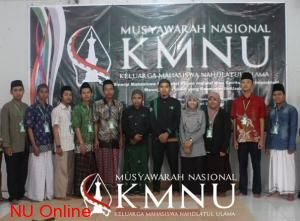Jakarta, NU Online
Over the past five years, NU has established some 23 NU universities in various regions in Indonesia. The effort will continue to be expanded in the next few years as more graduates of senior high schools, especially following the imposition of the 12-year compulsory education.<>
Deputy Secretary General of NU H Hanif Saha Ghofur explained that NU had a very large asset that can be capitalized for the establishment of universities. In this regard, the establishment of new universities would be directed in the provincial capitals and major cities throughout Indonesia.
"There are some places for would-be established universities in West Sulawesi, North Kalimantan, Bengkulu, Riau, and likely Maluku because there already exists (in the province),' he said, adding that Maluku had proposed to be built a university and "Bengkulu is ready this year and North Kalimantan will probably be next year," he told NU Online recently.
He said Indonesia would experience an explosion of high school graduates in 2017 following the 12-year compulsory education.
"It's not only be met by universities established by the state or state universities, and will certainly be in need of private universities. It anticipates an explosion (of graduates) that will begin in 2017. Hence, the NU universities have already identified some markets, how many high school graduates who will go on to universities, how many responses. This is what we have now done," he said.
"We'll see, not all regions will establish universities. Even we will reject if they have no potential. If the wealth is scattered, it will be consolidated by two or three branches of NU," he added.
According to him, there are four challenges in addressing the need such as the ownership of the asset. infrastructures ranging from lab, workshop, to library, human resources and operational funds.
"NU gives assurance amounted to Rp 3 billion per department, if there are 10 departments, there will be some Rp 3.5 billion and NU was ready for it. But each region should have the operational funds," he said.
To that end, NU has conducted a number of trainings for new universities such as marketing management, imaging management, asset management so that the universities could be managed profesionally and properly.
So far, NU universities can be classified into two groups. The first is the ones directly owned by NU and managed under the NU Higher Education Management (BP PTNU). Meanwhile, NU based universities under the NU Institute of Higher Education (LPTNU) are amounted 2014.
"Of course we want a positive synergy so that there is a tremendous synergy, knitting between universities and Islamic boarding schools (pesantren)," he said.
He also encouraged some NU universities that are still independent to enter in the management of BP PTNU. Some already included are Islamic University of Jember and NU University of Surakarta. Some others are still in process.
In the future, not only will the quantity be increased, but the quality will also be developed.
Editing by Sudarto Murtaufiq
Terkait
Terpopuler
1
Panduan Shalat Gerhana Bulan Petang Ini, Mulai Niat hingga Salam
2
Gerhana Bulan Total Bakal Terlihat di Seluruh Indonesia pada Selasa 3 Maret 2026, Dianjurkan Shalat Khusuf
3
PBNU Instruksikan Qunut Nazilah Respons Agresi Israel-AS ke Iran
4
Gus Yahya Sebut Kepergian Ketum Fatayat Margaret adalah Kehilangan Besar bagi Keluarga NU
5
Ali Khamenei Wafat dalam Serangan Israel-Amerika
6
Innalillahi, Ketum Fatayat NU Margaret Aliyatul Maimunah Wafat
Terkini
Lihat Semua



